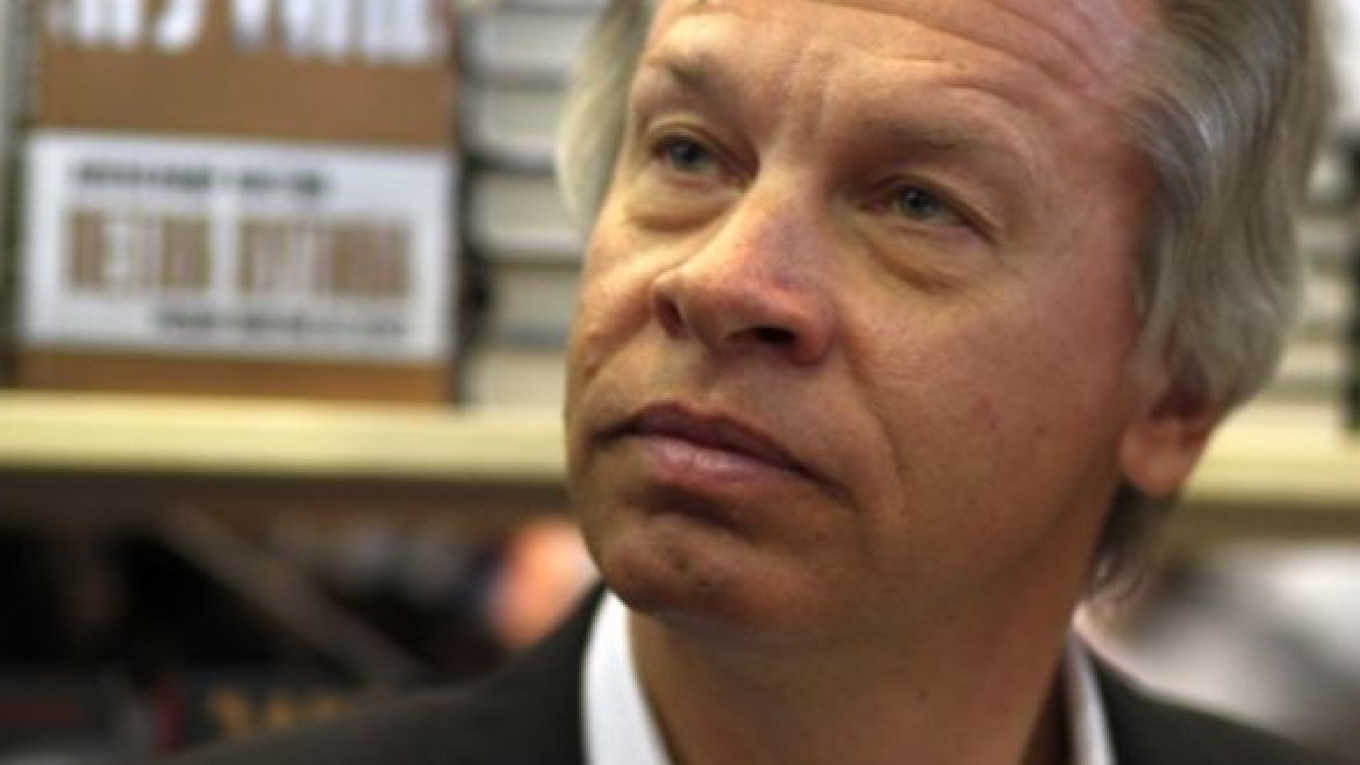A senior Foreign Ministry official harshly criticized United States authorities Monday for alleged human rights abuses while presenting a report on human rights in foreign countries.
Deputy Foreign Minister Sergei Ryabkov condemned what the report described as the often harsh conditions in American prisons, the use of the death penalty and the mistreatment of adopted children in American families.
"Washington's attempts to become the world's tutor on democracy are baseless," Ryabkov said during a hearing by the Duma International Affairs Committee on the human rights situation in the U.S.
The report, which was presented Monday without actually being released, is the second such paper authored by the Foreign Ministry on human rights abroad and comes in the run-up to a U.S. presidential election that could have an impact on the United States' relationship with Russia.
The first edition of the report was released in December and was seen by foreign relations experts as a response to a similar document published by the U.S. State Department that is often critical of Russia.
Russian authorities frequently respond to criticism from the West by pointing the finger at the alleged faults of their accusers.
U.S.-Russian relations have shown signs of strain since Vladimir Putin's return to the presidency this year, though the administration of U.S. President Barack Obama has not responded aggressively to anti-American rhetoric by Russia or to Russia's moves to limit U.S. influence in the country. Obama has touted the countries' "reset" policy as one of his foreign policy successes.
Ryabkov reiterated one of the motives for Russia's most significant action to curb U.S. activity in the country: the expulsion of the United States Agency for International Development, which followed Putin's allegation that the State Department had been funding the opposition through grants to NGOs.
"Russian civil society has woken up now and no longer needs prompters," Ryabkov said, using the word for a person in a theater performance who supplies actors with forgotten lines.
The U.S. Embassy, which sent at least one diplomat to Monday's Duma committee hearing, said the U.S. welcomed dialogue on human rights issues.
"The U.S. government has always demonstrated a readiness to engage in open conversation about democracy and human rights around the world. As our own history clearly demonstrates, open, factual honest discussions of these issues make democracies stronger," embassy spokesman Joseph Kruzich said.
The bulk of the information presented Monday by the Foreign Ministry was taken from American groups such as Human Rights Watch, a fact not hidden by Konstantin Dolgov, the ministry official who oversees human rights and who also spoke at the hearing.
Mirroring U.S. criticism of a Kremlin crackdown on protesters, Dolgov condemned what he described as police brutality against Occupy Wall Street demonstrators in New York.
Head of the nationalist Liberal Democratic Party Vladimir Zhirinovsky used characteristically colorful language to criticize U.S. Ambassador Michael McFaul for not coming to the hearing.
"Ambassador Michael McFaul could have come, but he doesn't like listening to two hours of criticism directed at his country," Zhirinovsky said. "But his diplomats recorded everything. They will tell him everything, and his lunch will be ruined."
Alexei Pushkov, the hawkish head of the International Affairs Committee, said McFaul had been invited to attend the hearing.
The Foreign Ministry report was presented two weeks before the U.S. presidential election, in which Obama faces Republican candidate Mitt Romney, who has called Russia the United States' "No. 1 geopolitical foe." Last year's report was published in December.
But Ryabkov denied that the timing of the hearing and the presentation of the report had any connection to the Nov. 6 election, saying that any attempt to link them to the U.S. political timetable would be "cheap."
Pushkov also denied a connection between the hearing and the upcoming election.
"We are talking about the United States as a country, not about a particular leader," Pushkov told The Moscow Times.
But that didn't stop the hearing's participants from criticizing the U.S. presidential election system as "outdated."
While many experts predict that U.S.-Russia relations could worsen if Romney wins, Putin has complimented the Republican hopeful for being a "straight and sincere" man, saying he was grateful to him for having clearly articulated his position toward Russia.
Former United Russia Duma Deputy Vladimir Semago, who attended Monday's hearing, said the discussion was an example of Russia's "fragmented" policy toward the U.S.
"[They] don't have a single line [as they did in Soviet times], when you could say 'You're lynching the blacks!'" Semago said, referring to Soviet propaganda that attacked racial discrimination in the United States.
Semago was echoed by foreign policy analyst Georgy Bovt, who described the hearings as the "PR work" of diplomats and international affairs pundits.
"When you in essence have nothing to show on American policy, you try to show how big you are as patriots," he said.
Related articles:
A Message from The Moscow Times:
Dear readers,
We are facing unprecedented challenges. Russia's Prosecutor General's Office has designated The Moscow Times as an "undesirable" organization, criminalizing our work and putting our staff at risk of prosecution. This follows our earlier unjust labeling as a "foreign agent."
These actions are direct attempts to silence independent journalism in Russia. The authorities claim our work "discredits the decisions of the Russian leadership." We see things differently: we strive to provide accurate, unbiased reporting on Russia.
We, the journalists of The Moscow Times, refuse to be silenced. But to continue our work, we need your help.
Your support, no matter how small, makes a world of difference. If you can, please support us monthly starting from just $2. It's quick to set up, and every contribution makes a significant impact.
By supporting The Moscow Times, you're defending open, independent journalism in the face of repression. Thank you for standing with us.
Remind me later.


